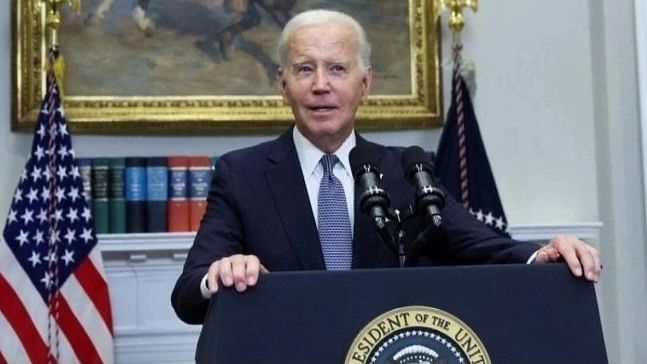
US President Joe Biden.
Credit: Reuters File Photo
Lebanese Foreign Minister Abdallah Bou Habib voiced disappointment with US President Joe Biden's remarks about the escalating crisis between Israel and Lebanon on Tuesday, but said he still hoped Washington could intervene to help.
"It was not strong. It is not promising and it would not solve this problem," Bou Habib said of Biden's speech at the United Nations earlier in the day.
"I (am) still hoping. The United States is the only country that can really make a difference in the Middle East and with regard to Lebanon," Bou Habib said in New York during a virtual event hosted by the Carnegie Endowment for International Peace.
Half a million people are estimated to have been displaced in Lebanon, he said. He said Lebanon's prime minister hoped to meet with U.S. officials over the next two days.
After almost a year of war against Hamas in Gaza, Israel is shifting its focus to its northern frontier with Lebanon, where Hezbollah has been firing rockets into Israel in support of its ally Hamas.
Israel says some 70,000 Israelis have been forced to flee their homes in northern Israel.
In his address, Biden sought to calm tensions, saying full-scale war was not in anyone's interest. He told the 193-member U.N. General Assembly a diplomatic solution was still possible.
Israel has said it prefers a diplomatic solution that would move Hezbollah away from the Israel-Lebanon border.
Hezbollah says that it also wants to avoid all-out conflict and that only an end to the war in Gaza will stop the fighting. Gaza ceasefire efforts are deadlocked after months of faltering talks mediated by Egypt, Qatar and the United States.
Bou Habib suggested Israel's government was not seriously pursuing a negotiated end to the fighting and instead sought to win on the battlefield.
The U.S. effort to halt an all-out conflict between Hezbollah and Israel has been led by a special envoy, Amos Hochstein. He has been thwarted by a cycle of attacks and counterattacks the Lebanese militant group began on Oct. 8, the day after Hamas’ onslaught into Israel, triggering the Israeli offensive into Gaza.
Hochstein and French diplomats have sought to broker a deal under which Hezbollah would pull back from Israel’s northern border, creating a buffer zone in which the Lebanese army would deploy.
Hezbollah has rejected a deal until Israel agrees to a ceasefire with Hamas. Israel says returning Israelis driven from their homes in northern Israel is a key objective of its fight with the Lebanese militants